Best Movies of the 2024 Cannes Film Festival


Coming in to the 2024 Cannes Film Festival, three films loomed large: George Miller’s “Furiosa: A Mad Max Saga,” Francis Ford Coppola’s “Megalopolis” and Kevin Costner’s “Horizon: An American Saga – Chapter 1.” To varying degrees, they all fell short of the impossibly high expectations cinephiles had put on them. Fortunately, the Cannes lineup boasted more than 120 other movies for critics to sink their teeth into, ranging from an ultra-bloody beauty-standard satire (“The Substance”) to Sean Baker’s Palme d’Or-winning whirlwind romance (“Anora”), in which an exotic dancer and a rich Russian playboy get hitched in Vegas. With a team of six critics on the ground, gorging on as many films as possible, Variety presents their favorite discoveries.
More from Variety
All We Imagine as Light
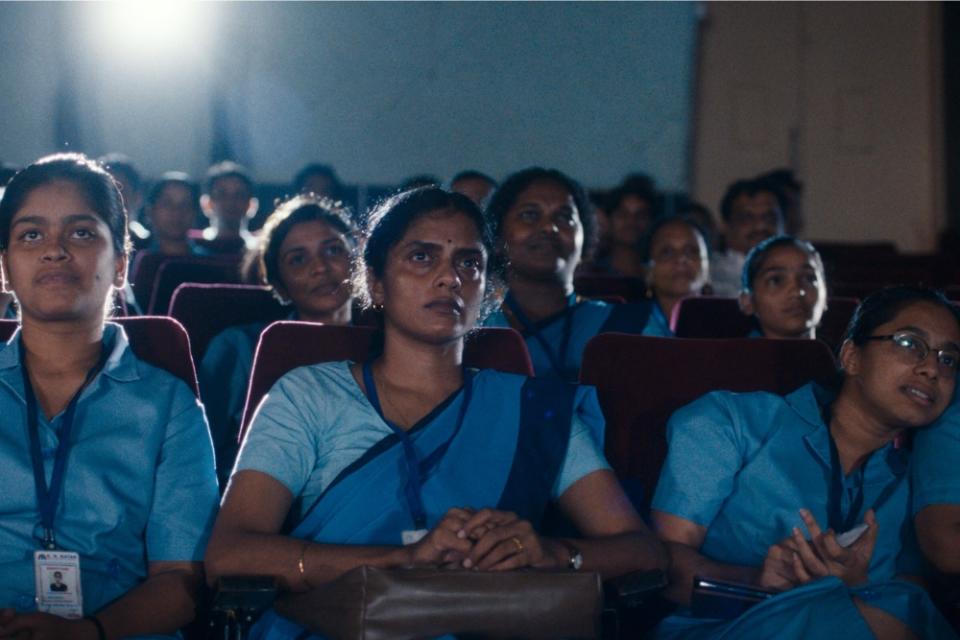
Indian director Payal Kapadia’s second feature is a wise, gently lambent portrait of two roommates, both Mumbai nurses, at different points in their romantic lives. Spanning the city and the seaside, an understated yet profound bond grows between them despite different ages and outlooks, and both actresses are outstanding. But it’s Kani Kusruti, playing the elderly woman facing the social and personal void left by her far-off husband, who is the breaking, mending heart of this dreamlike, daybreak-at-sunset movie. (Read the full review by Jessica Kiang.)
Anora

Director Sean Baker describes “Anora” as a Cinderella story, but that’s only true to the extent that his Walt Disney World-adjacent “The Florida Project” could be seen as a fairy tale. Baker’s subversively romantic, freewheeling sex farce makes “Pretty Woman” look like a Disney movie. “Anora” tells the story of how young people from different worlds fall in love, run into obstacles and deal with the consequences — except the couple in this case consists of a New York stripper (Mikey Madison) and the reckless son of a Russian oligarch (Mark Eydelshteyn). Baker isn’t coy — nor is he pervy — about the transactional sex between the two, presenting it without judgment. Following on the (knee-high boot) heels of four other films in which he centered the experience of sex workers, Baker brings the same seat-of-your-pants energy to “Anora” that he did to “Tangerine,” constantly switching up the film’s tone as the situation tornados out of control. (Read the full review by Peter Debruge.)
The Apprentice

A spirited and entertaining docudrama about the years in which Donald Trump came to be Donald Trump. Ali Abbasi’s movie starts in 1973 and centers on the relationship between Trump (Sebastian Stan) and Roy Cohn (Jeremy Strong), the infamous lawyer and fixer who teaches Donald to play by his rules — which is to say, no rules. The first half is kind of a knockout. Yet as Trump passes through the looking glass of malevolence, becoming even worse than his mentor, the mystery of his transformation remains unsolved. (Read the full review by Owen Gleiberman.)
Black Dog

A smaller-scale project than his blockbusters “The Eight Hundred” and “The Sacrifice,” Guan Hu’s Un Certain Regard standout has the grandly cinematic vision to lend an intimate tale a gloriously epic, allegorical edge. Set in a dying town on the fringes of the Gobi, “Black Dog” has elements of the Western or a film noir, in which desperate, often criminal protagonists struggle to escape their seemingly foreordained fates. Except the femme fatale here is more a chien fatal. (Read the full review by Jessica Kiang.)
Caught by the Tides
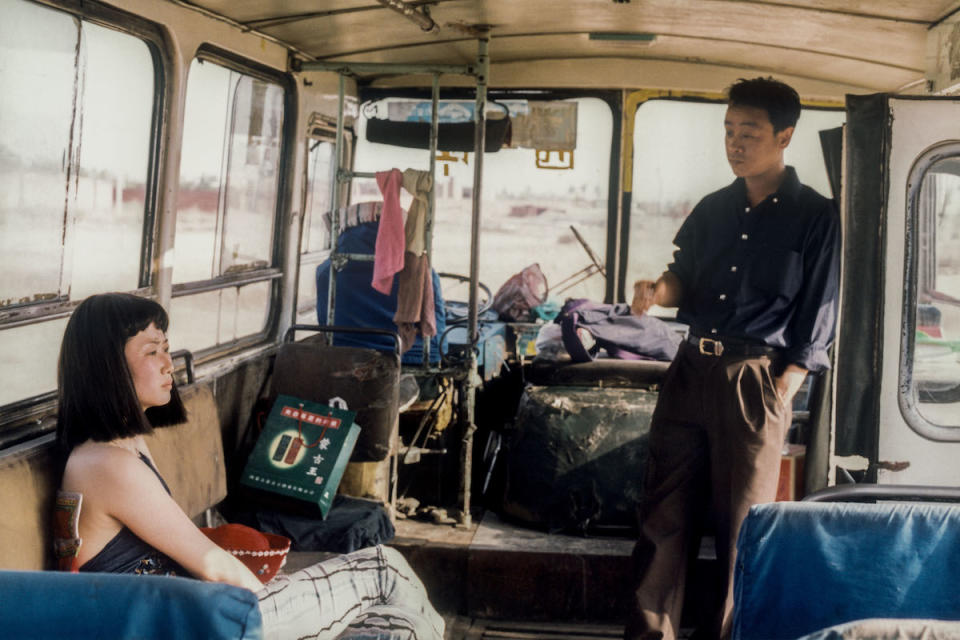
Loosely speaking a love story, Jia Zhangke’s mesmerizing film is perhaps the most definitive national portrait that modern China’s foremost cinematic chronicler has ever delivered. This is what it might look like if the eye of the storm of 21st century China’s many transformations could tell us what it saw … or could sing us, perhaps. For the most part, Jia’s masterfully poetic and pioneering fusion of the old and the new unfolds as a flowing series of extended montages with a musicality that is a splendid testament to the work of its three editors. Jia’s trademark fondness for the unexpected soundtrack cut finds its zenith here, as rave music, rock music, pop and dance anthems counterpoint the sometimes grim visuals. (Read the full review by Jessica Kiang.)
The Count of Monte Cristo
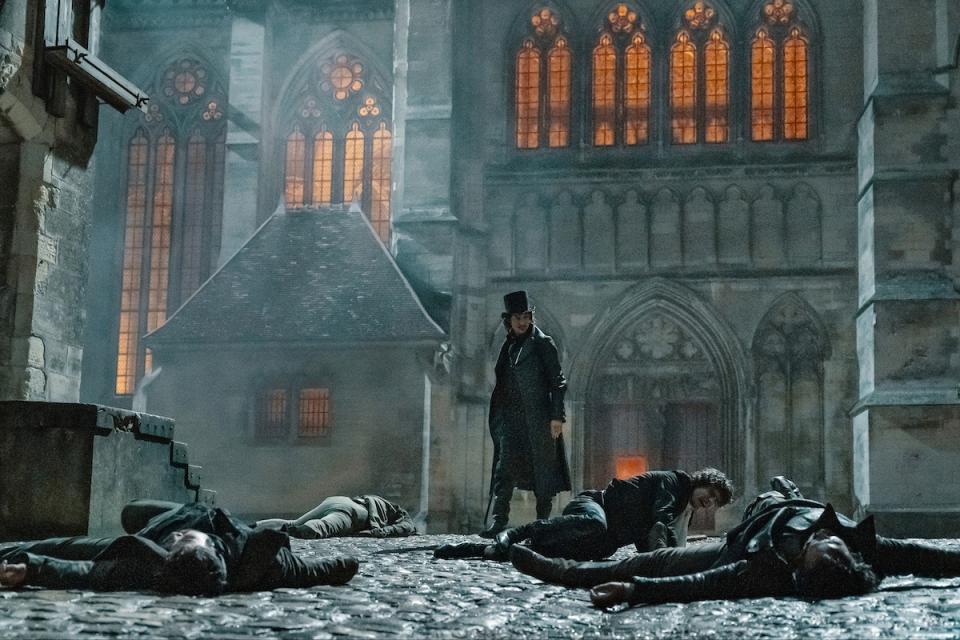
Last year, French distributor Pathé showed its post-pandemic commitment to the big-screen experience with a starry, two-part adaptation of Alexandre Dumas’ “The Three Musketeers.” By way of an encore, the studio tapped Dumas once again, condensing his 1,200-page revenge story into a sweeping three-hour epic. Featuring Pierre Niney (best known to Americans for “Yves Saint Laurent”) in the title role, the stunning adventure tale matches Hollywood in spectacle and panache. Had it been released in English a few decades earlier, “Count” would easily be competing for a best picture Oscar. (Read the full review by Peter Debruge.)
Eephus
In Carson Lund’s lovely little sundowner movie, a bunch of middle-aged casual baseball players use the excuse of the last game of the season — and perhaps ever — to fight the dying of the light. “Eephus” is not about rivalry as much as it’s about companionship. In a throwback version of the ’90s, it’s about making the Great American Pastime a vehicle for a togetherness these men crave but that American masculinity discourages them from articulating in any other way. (Read the full review by Jessica Kiang.)
Emilia Pérez

Like a rose blooming in a minefield, it’s a miracle that Jacques Audiard’s south-of-the-border pop opera exists. The director of “A Prophet” takes audiences into the realm of Mexican cartels, where a fearsome drug lord (Karla Sofía Gascón) wants out, not because he’s had a crisis of conscience but because he’s decided to embrace his true self … as a woman. The film asks: What if you took the poster boy for toxic masculinity and made them a woman, in a way that eclipsed the aggressive original persona? That this exhilarating Spanish-language musical works is a testament to leading lady Karla Sofía Gascón and the audacity of Audiard, who had the good sense to incorporate Gascón’s personal experience into the character. (Read the full review by Peter Debruge.)
Ernest Cole: Lost and Found
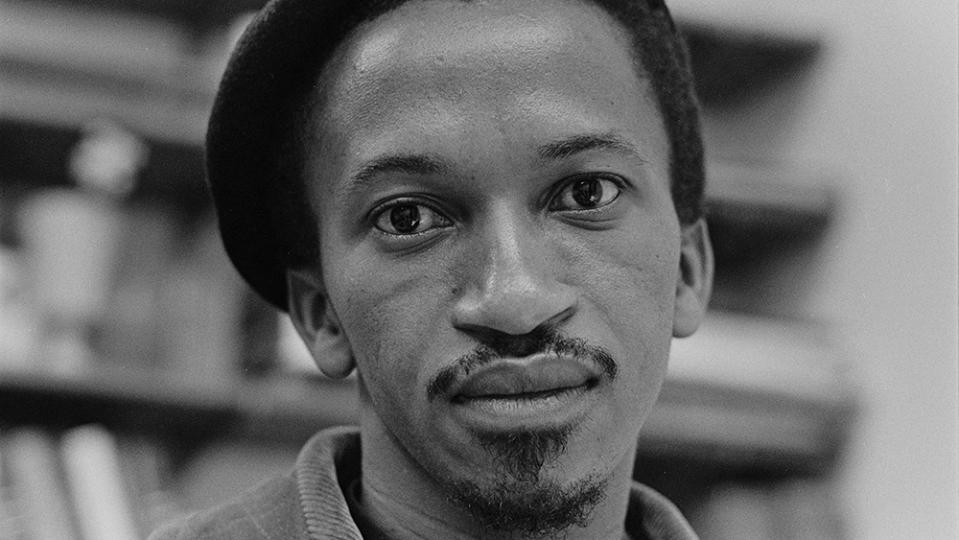
Raoul Peck’s documentary about Ernest Cole, the South African photographer who chronicled the evils and everyday experiences of life under apartheid, could be considered a companion piece to “I Am Not Your Negro,” Peck’s lacerating portrait of James Baldwin. Cole’s photographs are vérité dioramas, psychological portraits of life inside a caste system. Moving to New York City in 1966, he published “House of Bondage,” the book that showed the world what apartheid looked like (it showed people what it was). Through it all, though, Cole himself remained an isolated figure, almost a ghost. Yet his photographs achieved something essential. By the end, when a cache of 60,000 of them is discovered in a bank in Stockholm, you can feel the ghost speaking to you. (Read the full review by Owen Gleiberman.)
The Girl With the Needle

Magnus von Horn’s extraordinary and upsetting film is loosely based on a true-life case from a pre-feminist age, though to detail its facts would be to interfere with the brooding, slow-coiling shock of the film’s own reveal. Suffice it to say that one earthly circle of hell keeps giving way to another. The extremity of suffering on display here makes for difficult viewing, scarcely leavened by the expressionistic beauty of its presentation. But von Horn’s film never plays as empty miserablism, in large part thanks to its grave understanding of the moral and spiritual reasoning behind unimaginable acts of violence. (Read the full review by Guy Lodge.)
Grand Tour

Our times are troubled, our burdens heavy, our passage through life often arduous and the bad kind of absurd. But for anyone feeling a pessimism creeping in like slow poison and taking the edge off any appetite for adventure, Portuguese singularity Miguel Gomes comes like a comet across the Cannes competition with an enchanting, enlivening, era-spanning, continent-crossing travelogue that runs the very serious risk of infecting you with the antidote: a potent dose of wanderlust for life. (Read the full review by Jessica Kiang.)
Kinds of Kindness
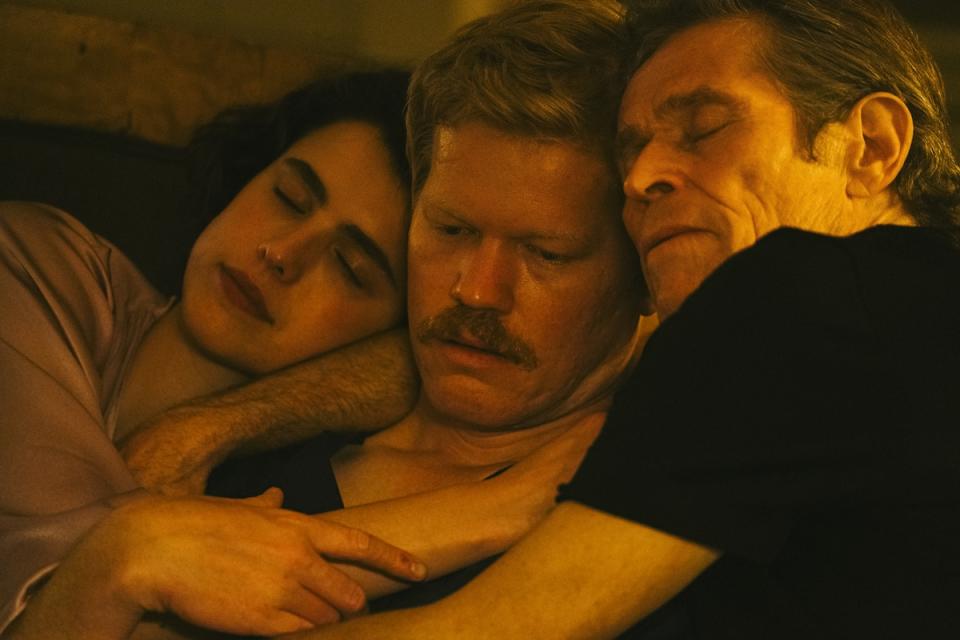
After achieving box office success and awards acclaim with “The Favourite” and “Poor Things,” Yorgos Lanthimos does a hard reset, reteaming with “Dogtooth” scribe Efthimis Filippou on several deadpan parodies of control and consent: in the workplace, in marriage, in religion — all realms where people relinquish their power to others. The anthology film finds Lanthimos taking a victory lap, with a killer cast (led by Jesse Plemons and Emma Stone) and the far richer resources of an American indie studio at his disposal. (Read the full review by Peter Debruge.)
On Becoming a Guinea Fowl
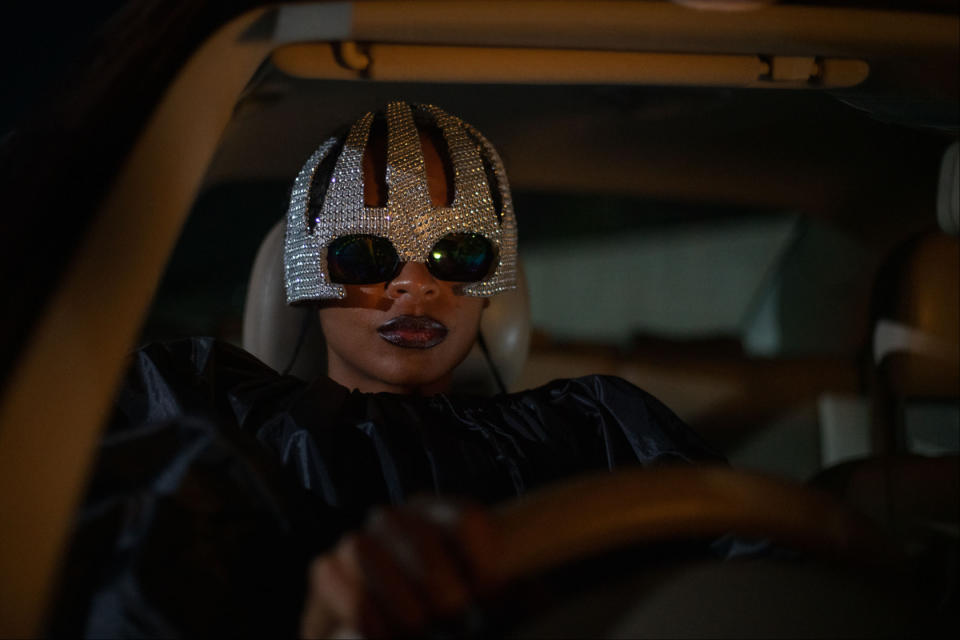
A quivering collective fury scalds the silence in “I Am Not a Witch” director Rungano Nyoni‘s tremendous new film as a group of young women, nursing the scars of sexual abuse, chafe against the quiet complicity of family elders when their shared perpetrator drops dead. Blending molasses-dark comedy with searing poetic realism to capture contemporary Zambian society at a generational impasse between staunch tradition and social progress, this is palpably new, future-minded filmmaking, at once intrepidly daring and rigorously poised. (Read the full review by Guy Lodge.)
The Other Way Around
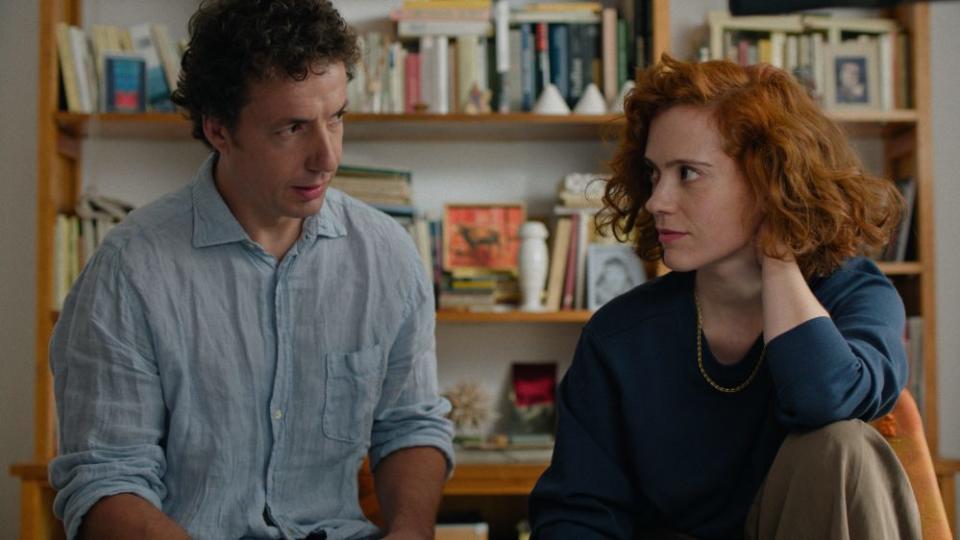
The dogged pursuit of the relationship unicorn that is the good break-up informs the wit and winking wisdom of this delightful showcase for Spanish director Jonás Trueba’s lithe, airy style. A hip, popular twosome decide to call it quits after 14 years, cuing a very funny yet properly grown-up portrait of the ideal couple trying to smoothe, and even to celebrate, their transition into ideal exes. It’s the celebration aspect that will prove their undoing. If the good breakup is rare, the joyous breakup is completely mythical. (Read the full review by Jessica Kiang.)
The Seed of the Sacred Fig
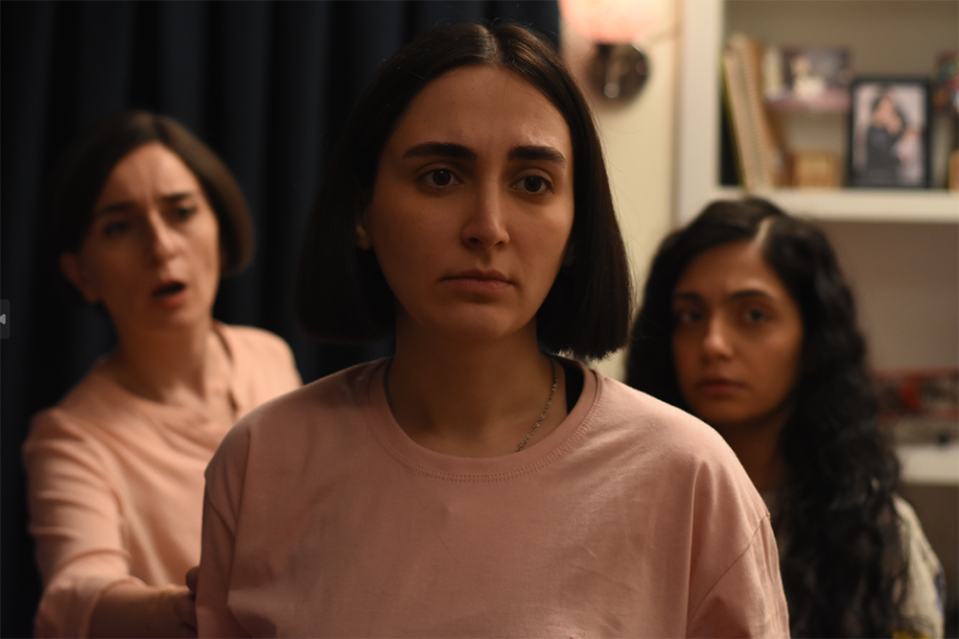
Director Mohammad Rasoulof responds to his own imprisonment in 2022 by examining Iranian tensions within the context of a Tehran household with two university-age daughters. For most of this slow-boiling, nearly three-hour movie, the main character is not the family’s patriarch (Misagh Zareh) but his rule-abiding wife, Najmeh (Soheila Golestani). Set against the Jina Revolution, this livid, thinking-person’s thriller depicts the germination of a new solidarity, which started with students but takes root once average citizens like Najmeh buy in. (Read the full review by Peter Debruge.)
The Substance
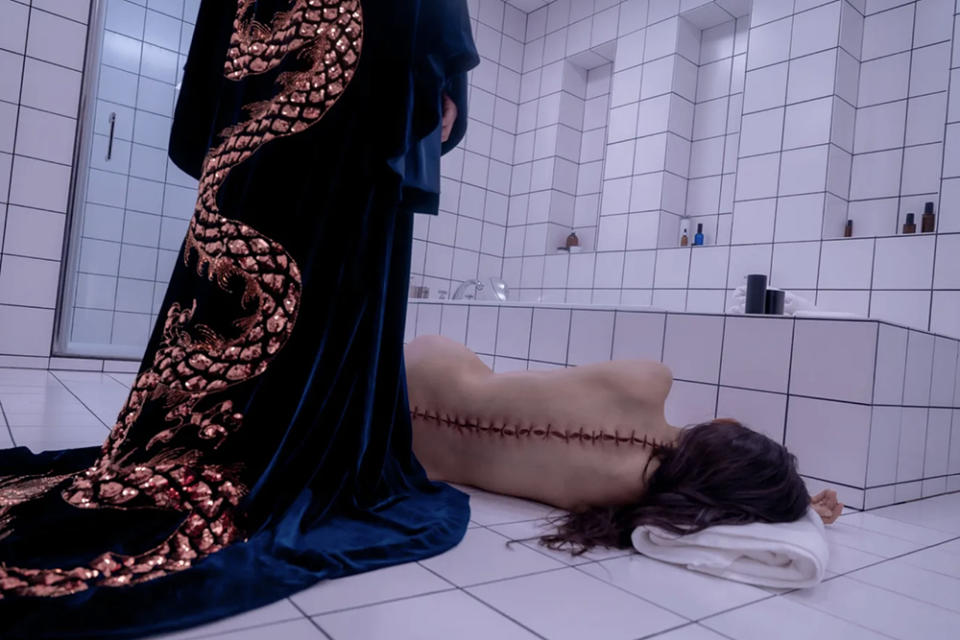
Coralie Fargeat’s shocking and resonant feminist body-horror film has something primal to say. Elisabeth Sparkle (Demi Moore), a Hollywood actress-turned-aerobics-workout-host, gets fired from a TV network because she is now deemed too old. So she signs up for a sinister sci-fi body-enhancement program, and before long out pops her new self: a “perfect” specimen of sexy vibrant youthful womanhood named Sue, played by the crisply magnetic Margaret Qualley. Elisabeth now gets to “be” Sue every other week. It’s like “Dr. Jekyll and Mr. Hyde” meets “Showgirls,” retold as a dream/nightmare of the trillion-dollar culture of cosmetic enhancement. Fargeat works in a wide-angle-lens, up-from-exploitation style that might be described as cartoon grindhouse Kubrick. Moore’s performance is nothing short of fearless, and the movie builds toward a climax that must be seen to be believed. It centers on a true monster, not just a mass of twisted flesh but a deformation of the spirit. (Read the full review by Owen Gleiberman.)
Wild Diamond

The new fame, the lusty fickle kind bred by social media, is the subject of Agathe Reidinger’s startlingly bold and true French drama. Liane (Malou Khebizi), a 19-year-old glam trainwreck, looks like Brigitte Bardot as a dysfunctional shopping-mall Barbie. When she gets her shot to join a reality show called “Miracle Island,” the film becomes the story of her life, and of the corrupt dreams we’re all being sold. Reidinger, in her first feature, works with a clear-eyed power worthy of Andrea Arnold. (Read the full review by Owen Gleiberman.)


